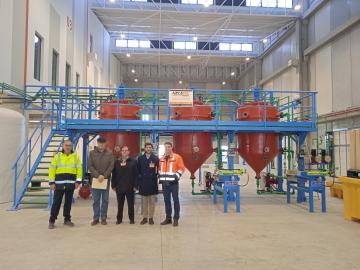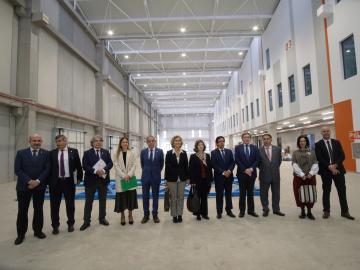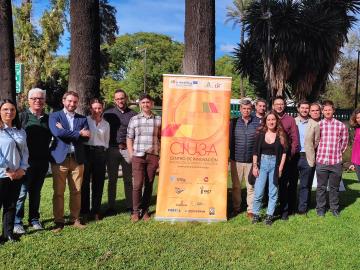Study to evaluate reusable materials and waste from the copper production plant in Huelva (EVAMAR)
Evaluation of waste and reusable materials from a copper production plant
Chief researcher
Researcher
Location
Technology
Metallurgical technology
Allied agents
Summary of the proposal
During the production of high-purity copper, a large quantity of materials that have traditionally been treated as waste are created, but which, after certain actions, can become reusable materials or products for sale or use in other industries as raw materials. This study aims to evaluate the current generated in the plant for the elimination of antimony and bismuth from the electrolyte used in the final process of electrorefining copper at Atlantic Copper’s metallurgical complex in Huelva.
Project goal
The main goal is to obtain, from a liquid current from the plant that extracts Sb-Bi from the copper refinary’s electrolyte, antimony and bismuth compounds that can be considered as by-products or saleable products, instead of the current process in which a solid is generated that is presently treated as waste. This project is aligned with the policy of stimulating the Circular Economy in Europe.
Expected results and indicators
At a first stage, which will cover the detailed knowledge of the physical-chemical bases of the current form of generating the current, as well as the evaluation process, it is expected that the following will be obtained:
- Predominance diagrams of the species involved, according to temperature, pH and concentration
- Viability of the processes proposed and studied
- Optimum conditions, where appropriate, of the assessment techniques by which the best performance is achieved
- Design of the pilot plant units and their working conditions
At the second stage, by means of the operation of the pilot plant, it is expected that the following will be obtained:
- Optimum working conditions and performance
- CAPEX/OPEX study (preliminary)
Indicators
- New research staff (annual equivalent): 1
- Patents: 1
- No. transfer agreements: 1
- Conferences: 3
- Indexed publications: 2
- Doctoral theses: 1
Potential technological impact of the project (TRL)
It is expected that during the first two years of study, the basic research phase will be tackled, at a laboratory level, progressing towards a TRL-4 stage. During the last two years, the study should progress as far as a pilot plant stage, or TRL-7.




